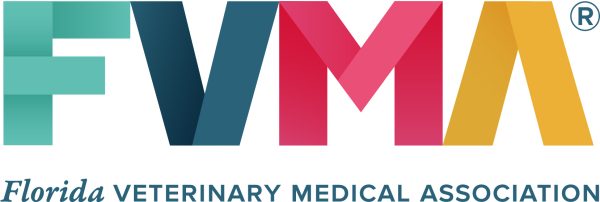
Veterinary Assisting - Certificate Program
If your career goal is to be a veterinary assistant, taking care of animals in a variety of settings, EFSC’s one-year certificate program may be the right start for you.
Eastern Florida’s Vet Assistant curriculum is task-oriented, focusing on the skills required to help veterinary technicians and veterinarians in clinical practice. Coursework includes hands-on and clinical experiences under the close supervision of faculty.
Our Veterinary Assisting graduates are prepared to perform many kinds of animal care, including feeding, bathing, and exercising, and to restrain animals during examinations and treatment. They sometimes also perform lab work, such as drawing blood and collecting urine samples.
The 14 credits from the Vet Assisting CCC will transfer to the Veterinary Technology A.S. degree program after the completion of the certificate program. The last term of the CCC can even overlap with the first term of the A.S. degree, if a certificate program student has applied and been accepted into the A.S. degree track.

EFSC's Veterinary Assisting program fees include the preparation resources and testing fee to earn the Certified Veterinary Assistant (CVA), a designation recognized and certified by the Florida Veterinary Medical Association.
Veterinary Assisting - Certificate Program
Program Overview
- Certificate Type
- College Credit Certificate (CCC)
- Delivery Method
- On-Campus, Hybrid
- Location
- Cocoa
- Total Credit Hours
- 14
- Academic Community
- Health Sciences
- Contact Information
-
Health Science Advising
Email Advising
321-433-7575
Veterinary Assisting COURSE CURRICULUM
Veterinary Assisting is a three-semester, part-time certificate program. EFSC training
site benefits include:
- Our specialized clinical pathology laboratory and surgical, dental, and radiography suites
- Clinical experiences each semester with both large and small animals
- Experienced, degreed faculty with training ranging from veterinary general practice to specialization in public health, clinical toxicology, and large animal/equine
Veterinary Assisting CCC Admissions Information
EFSC’s Veterinary Assisting certificate is a limited-access program with a point-based
selection system and requires a special application in addition to the general EFSC
admissions procedure. Because it's a certificate program, it does not have placement
testing or general education requirements.
Deadline: September 15th for a Spring Term Start (Contact a health sciences advisor if that deadline has passed to check on whether
seats are available for a late application).
Review the basic steps below, linking through to the detailed information about the Selection Criteria and Application Process.
- Meet with a Health Sciences advisor to review program requirements and the selection process. Selection for admission
is guided by a selection point scale. Discussing this with a health science advisor before you apply is recommended as
part of the process.
- Apply for Admission: Interested students must review and complete the customized Vet Assisting Application Process. Completed application files are due by the annual deadline. Please Note: If the deadline has passed, contact a health sciences advisor to see if space may be available for a late application.
- Review complete program information. Check out all the details on this page and look over common questions and answers about the program.
Veterinary Assisting Costs & Financial Aid Eligibility
Estimated expenses, including tuition, textbooks and fees for EFSC’s Veterinary Assisting CCC program total approximately $3,356.
Since the program is only 14 credit hours, it does not qualify for Federal financial aid. However, there are other options available to help you cover the costs. You can use the Nelnet Payment Plan to manage your tuition payments. Additionally, if you have a Florida Bright Futures Scholarship or a Florida Prepaid account, you can use those funds toward your education. Veterans may be eligible for Veterans Educational Benefits, and there are scholarships offered by the EFSC Foundation and external organizations that you can apply for.
College Courses You Would Take
Classes in the Veterinary Assisting program build on each other through a planned sequence that includes coursework at the college and clinical experience in an approved community workplace. Here are some of the courses you would take:
This hands-on course focuses on basic lab skills, including restraint, history taking, exam room techniques, administration of medication, basic parasitology & clinical pathology procedures.
Students will understand, formulate, articulate, document, and communicate effectively with colleagues and clients using the language of the veterinary medical professional.
This course is designed to acquaint the student with office procedures, client education, mathematics and veterinary computer applications.
Explores normal & abnormal canine & feline behavior, learning theory, & behavior modification techniques, & treatment of behavioral issues by pharmacologic and other methods.
Why Study Veterinary Assisting at EFSC?
Hands-On Training to Prepare for a Job
Graduates are ready for entry-level work as part of veterinary teams in diverse settings, from veterinary practices to animal hospitals and research centers. Most find jobs in general practice veterinary clinics, but employment opportunities can also be found at charitable organizations such as the Humane Society, at zoos, in the military, or at research institutions.
A Head Start on an Associate Degree
EFSC vet assistant graduates can use the program's 14 credit hours to accelerate into
the college’s Veterinary Technology A.S. degree program. Earning an associate degree can then be a stepping stone to a bachelor degree if
additional credentials are part of your educational goals.
Explore More Health Sciences Programs
As you consider the Veterinary Assisting program, take a look at other program options.